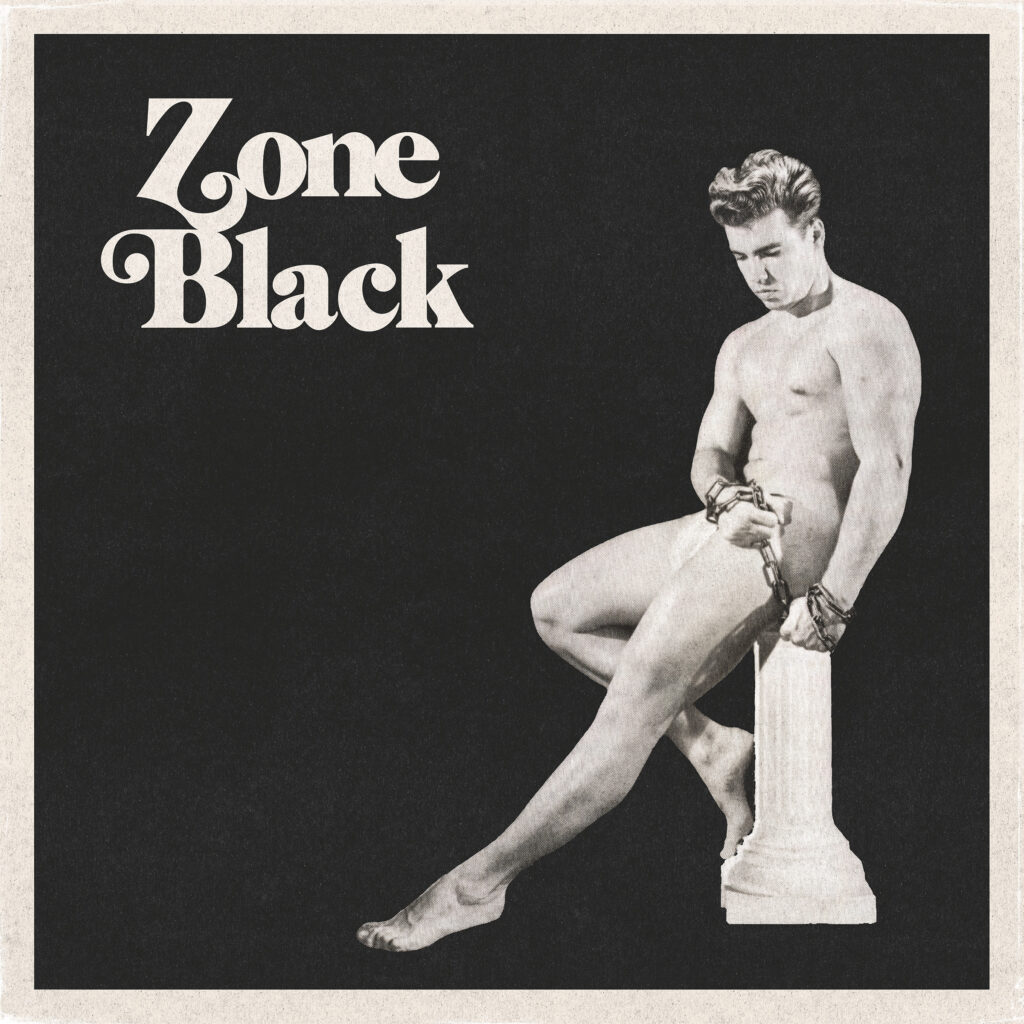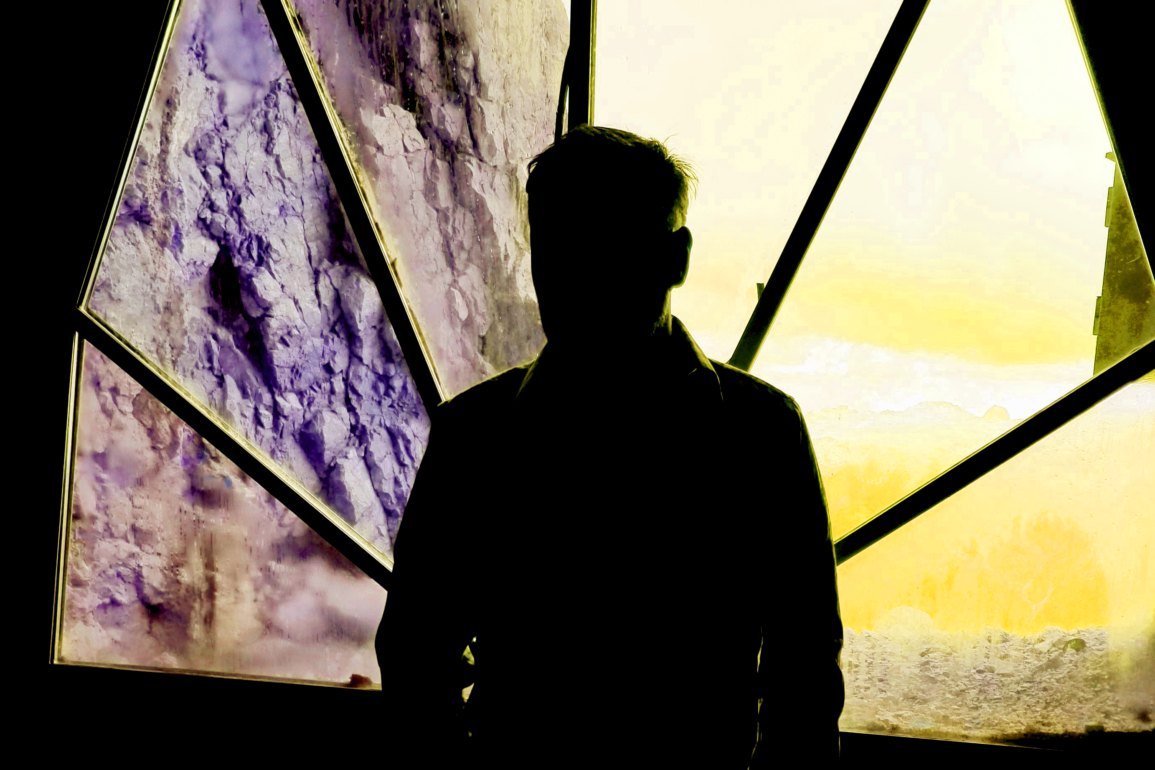Cover Photo Credit: Casey Proctor
We know Emil Amos from various projects including OM, Grails, and Holy Sons. His recently released new solo album Zone Black is, unsurprisingly, an eclectic effort: A record driven by film noir spirit, hip-hop beats, uncanny synths, and more… Let Amos tell us the whole story.
How are you doing these days, Emil?
EA: Taking it day by day…
Your new album Zone Black will be out by the time we publish this interview. Explain it in a nutshell: What is this album to you, and how did it come to be?
EA: I was trying to slow my mind down and mash my song-forms down into a kind of body-high music. It was an important step in moving out of the shackles of the traditional rock music assembly-line… Getting further away from basic production tropes and closer to what I really want to listen to.
The album is an interpolation of music for films and television. What are some films and series you have seen so far that include your favorite soundtracks?
EA: I grew up on all the haunted 70’s vibes in shows like Kung Fu and The Hulk. So there are some literal reference points I could list… But this music mostly comes from a general feeling and a summation of the awkward memories people my age have from when they first saw films like Thief or Risky Business when they were a bit too young to understand what they were seeing.
Who are some of your favorite beatmakers?
EA: Madlib is the one that really made me want to get involved, but MF Doom was a major paradigm shifter for sure. Before there was anything like vaporwave, MF Doom’s sense of humor was really needed in the early 2000’s. But Madlib’s production was dirtier, and he put more work into his records. Which helped me connect the dots between the homemade drug music of the late 80’s I grew up on and modern-day beat-making. He helped me believe that once you got comfortable with virtually any sampler, there was still a pretty wide-open horizon left to mess with in instrumental hip-hop.
The 80’s synth influences remind me of horror films. Are you a horror film buff, and if so, what are some of your favorite films?
EA: I’m into it deeply for sure, but at a more casual pace these days. In the original Hitchcock wave and then Argento’s take on suspense, there was always a really nice texture of suspicion, red herrings and double lives that I really responded to. The original idea of “horror” was that it was more of an existential state, which made it feel really captivating. I’m not quite as interested in the genre as a category these days unless the film’s story is really developed, there’s definitely been some great things happening for sure though. I thought Infinity Pool was strong.

How do you think the cover art reflects the mood and themes of the album?
EA: I have a constant need to keep moving forward and doing things I haven’t done yet, and I’d gotten really sick of using women in our artwork as devices years ago. It had started to feel lecherous somehow, even though we were just trying to capture that specific 60’s/70’s vibe of sleaze in paperbacks and film. So I’d been collecting old softcore pamphlets of early male beefcake photos to try and veer the other way, and that image was so perfect because there’s an important song on the record called “Theme from a Personal Prison”, which was my vibe at the time.
What instruments and tools did you experiment on for this record?
EA: I’d started collecting a few old keyboards when I started the record. The most flexible and dependable were the Mellotron and the OP1, but I still reach for the Yamaha SK15 Organ, the Moog Grandmother, or my Wurlitzer when there’s nothing else that can really glue a track together.
If you were to handpick the easiest and hardest songs to write and record for this album, which two would you pick?
EA: I think “Bad Night at Cowboys” was the most difficult to cut up and edit, and then “Moving Target” came together pretty fast. I think I made most of “Moving Target” back in 2013, so I’d been working on this record’s concept in the back of my mind for a really long time.
The original idea of “horror” was that it was more of an existential state, which made it feel really captivating. I’m not quite as interested in the genre as a category these days unless the film’s story is really developed, there’s definitely been some great things happening for sure though. I thought Infinity Pool was strong.
Emil Amos
A quick game, no cheating: Reply with the three most recently streamed songs from your library.
EA: I’m not a huge streamer, but the records sitting next to my turntable right now are Christie’s The Dealer/Pleasure and Pain, a new Michel Banabila record called Wah Wah Whispers and Freestyle Fellowship’s To Whom it May Concern.
If you had a chance to carve one of your lyrics to your memorial stone 100 years from now, what would you choose?
EA: It’s a lyric I stole from Charlie Rich: “Don’t put no headstone on my grave, ‘cause all my life I’ve been a slave.”
You can check out Emil Amos’ Bandcamp profile here.



